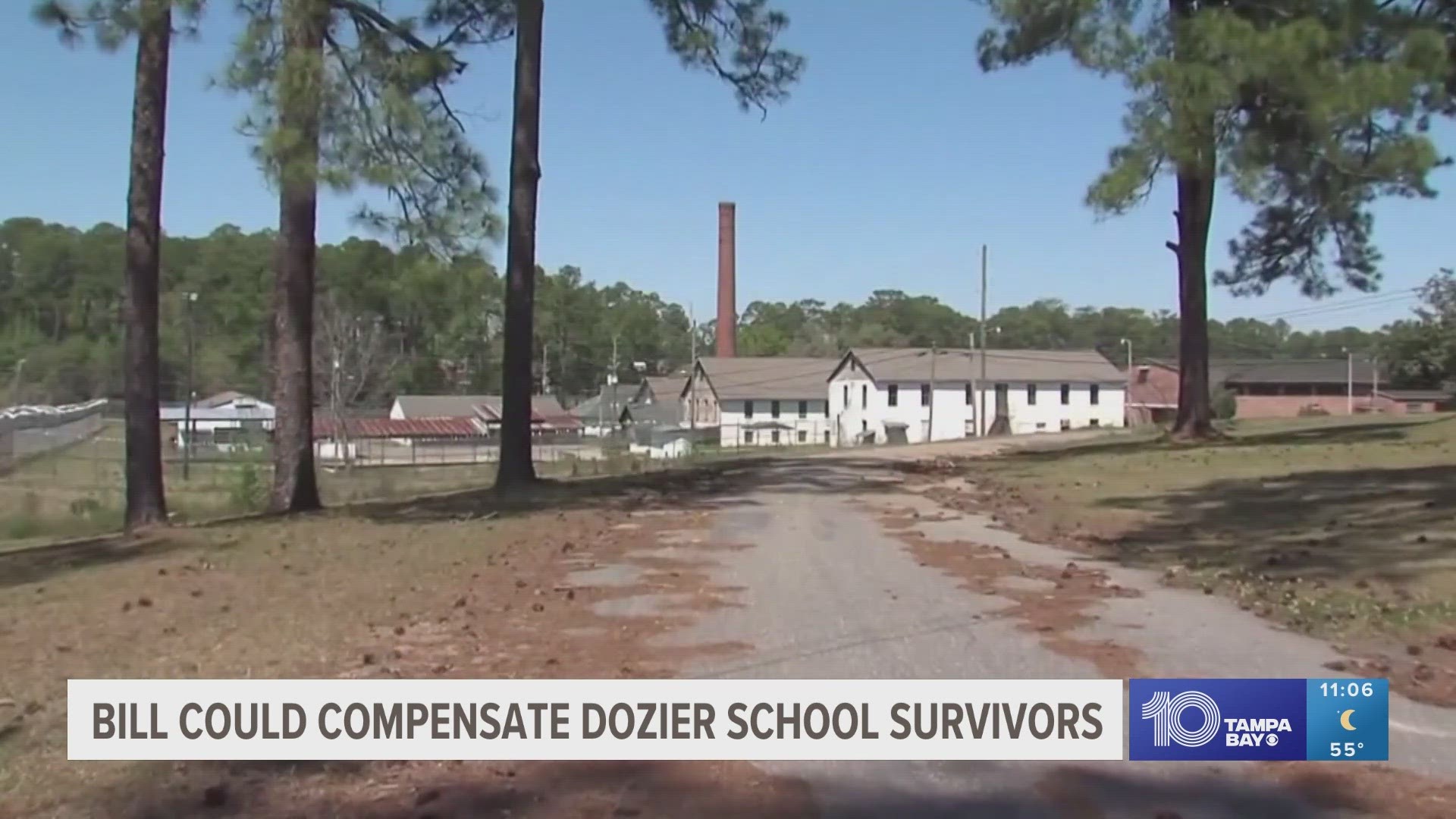HOMOSASSA, Fla. — Survivors of abuse are once again demanding justice from lawmakers. After years of efforts, a new bill aimed at compensating survivors of the Dozier School For Boys is making its way through the Legislature.
Hundreds of men have detailed abuses at the former state-run reform school and even deaths of children. The compensation program would also apply to survivors who attended the Okeechobee School.
"We're dying off quicker than people can realize," said survivor Charles Fudge of Homosassa.
Fudge now serves as president of The Official White House Boys Organization, in reference to the building where survivors said abuses often took place. Fudge states many survivors have passed away, especially during the COVID-19 pandemic. It's past time the state provided compensation, he said.
The program would run under the state Department of Legal Affairs, according to the bill. Survivors who attended the reform school between 1940 and 1975 would be eligible to apply.
At a committee hearing on Tuesday, some survivors including Fudge spoke to lawmakers pleading for justice.
At least 500 former Dozier students have come forward over the years to report physical, sexual and mental abuse at the hands of those who worked there.
From 2012 to 2016, the remains of 55 people were found on the former reform school's property. Then in 2019, research crews were alerted to the possibility of an additional 27 anomalies. Survivors are also urging for more research to find answers.
Fudge said survivors are also pleading with lawmakers to help find answers for the 183 boys who are unaccounted for.
While no amount of compensation can undo the past and its impact, Fudge said he believes it would allow the remaining survivors to make the most of what's left of their lives. It would also help supply financial needs, including medical.
"I've lived with this for 65 years now. It won't go away but justice would help," Fudge said.
The state formally apologized to survivors in 2017.
The bill does not specify an amount for compensation to survivors. It could be up for a House floor vote anytime and the Senate bill has one final committee stop before heading to the floor.

